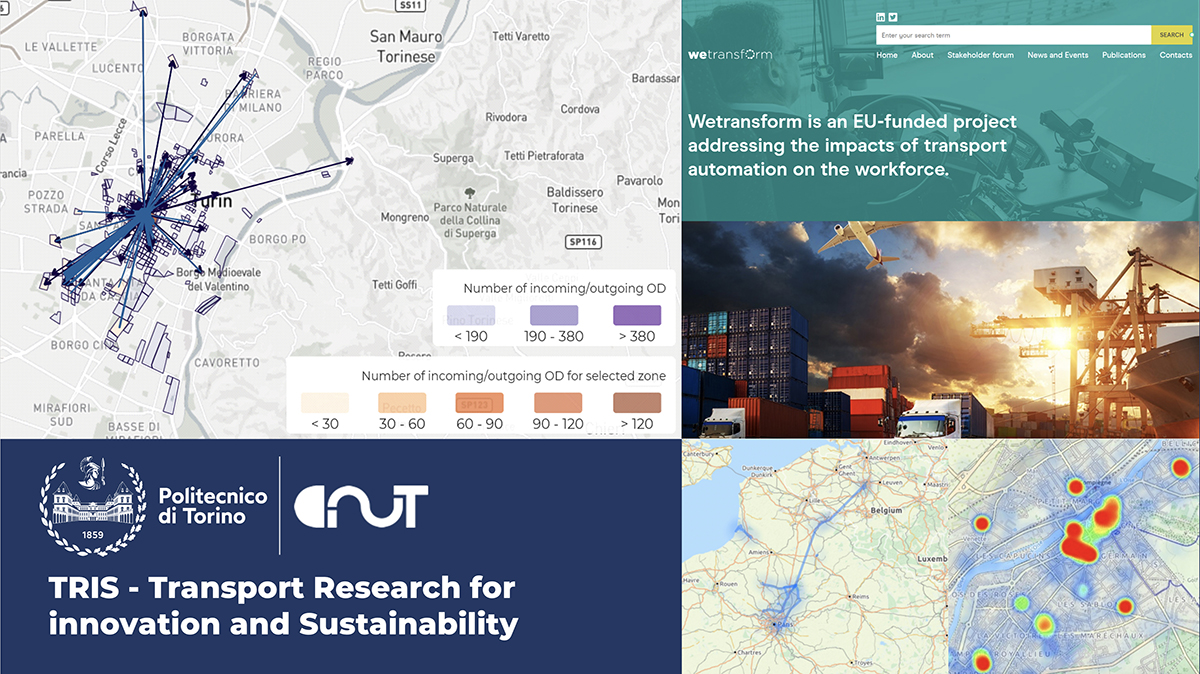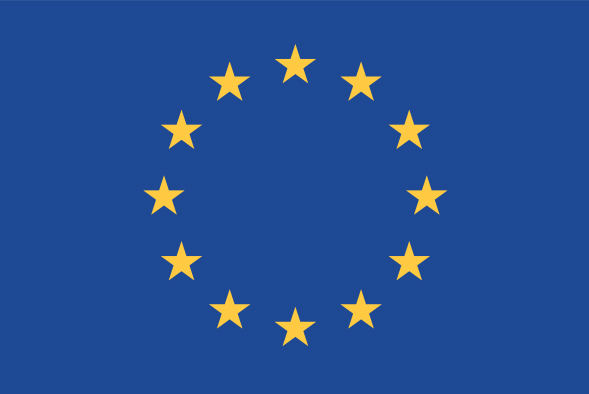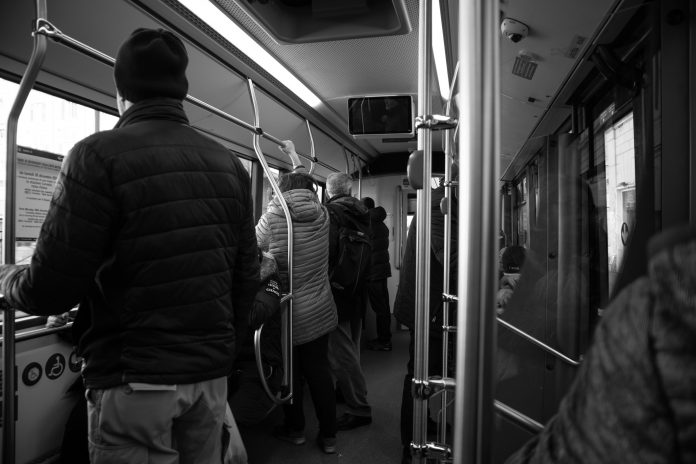Professor Pronello presents the WE-TRANSFORM project and the activities of her research group TRIS – Transport Research for Innovation and Sustainability
The growth and deployment of new transport services through automation and ICT technologies is a constantly accelerating process. But this growth has a significant quantitative and qualitative impact on the workforce, and it is therefore crucial for policy makers to facilitate the adaptation of workers’ skills to this new era.
The impact of automation and digitalisation on the transport workforce is being investigated by WE-TRANSFORM, a European project that began in December 2020 coordinated by Professor Cristina Pronello, Professor of Transport at Politecnico di Torino, Interuniversity Department of Regional and Urban Studies and Planning – DIST. The project involves 34 partners from all over the world and from different sectors – public institutions, universities, social partners, trade unions, companies, multinationals, and the legal sector.
WE-TRANSFORM aims to apply a participatory approach, using Collective Intelligence (CI), supported by Artificial Intelligence (AI), to generate an evidence-based and action-oriented agenda to tackle the challenges that digitalisation and automation will pose to transport sector. The project has three main aims which are discussed below.
A collaborative platform
To set up and foster a collaborative platform for the discussion of the effects of automation on transport labour with relevant stakeholders. This will be done mainly by the establishment of a cross-national living hub – meant as an inter-continental European-based platform including Japan, Canada, USA, and South Korea – that will comprise of the key stakeholders of all transport modes, researchers, decision makers, trade unions and workers’ associations, according to the professional profiles.

Shareable knowledge
To co-create user-friendly and shareable knowledge related to automation impacts on transport labour. The aim is to assess the impacts on workers within all transport modes and related sectors (indirect/induced effects), with attention to specific topics, such as women and people with disabilities and to gain a sound understanding and insight into the factors which can drive automation-driven transitions. Such knowledge includes not only actions and initiatives related to transport automation and best practices of previous automation-driven transitions, but also those barriers, needs, skills and challenges which are required to have an appropriate ground to contrast the negative aspects of automation.
With its shared and participatory approach derived from the cross-national living hub and the use of CI, WE-TRANSFORM envisages being a breakthrough in changing governance, founded upon the “wisdom of the crowd.” To do that, AI and machine learning methods will be tested to gather and analyse all the existing literature, reports, studies activities and H2020 R&I projects, case studies and data across the world on the impacts of automation on the labour force, both in transport and in other sectors.
Effective dialogue
To enable and support durable and effective dialogue on innovation and the reality of workforce requirements and conditions. Identified stakeholders will use CI to co-design a comprehensive, evidence-based, action- oriented, appropriate agenda to minimise the potential negative effects of automation on labour force. The identified solutions will not be simply based on forecasts or simulated scenarios. Extreme events and discontinuities are more and more the reality, and these are, by their nature, uncertain and unpredictable, so that the prediction on past knowledge seems by far less useful than a continuous adaptation and adjustment to the unpredictable events.
Moreover, a business model which includes a multiannual financial plan to make the living hub perennial beyond the duration of this project is foreseen.
The future of WE-TRANSFORM
WE-TRANSFORM will create a Stakeholder Forum, with several meetings planned during the projects and six workshops (two per year). Stakeholders from different regions of the European Union will be involved through the consortium partners. The Forum and the Advisory Board (technical and marketing advisor of the project) will contribute to the identification and involvement of stakeholders in the activities of the transnational living hub, enabling a collaborative learning process among participants. The use of a variety of techniques will help to collect data and produce knowledge (e.g., interviews, public consultations, serious games activities). Thus, information will be analysed to generate the action-oriented agenda available to policymakers to make their choices.
WE-TRANSFORM is coordinated by the Politecnico di Torino, that is extremely focused on transport research, smart mobility and sustainability. By its very essence, transport research is interdisciplinary: Its object of study is structurally influenced by geographical constraints, political agendas, social organisation, and cultural practices.
That’s why Professor Pronello created the Transport Research for Innovation and Sustainability (TRIS) laboratory in 2015, applying an interdisciplinary approach. The research enlarges the knowledge of human behaviour in space-time environment and develops concrete solutions to help individuals, firms and decision-makers forging a smarter sustainable mobility of goods and people, adapted to the specific geographical context.
The TRIS research activity is focused on two main topics:
- The environmental impacts of transport systems.
- The analysis of travel behaviour to define proper policies of sustainable mobility.
The objective is to develop and adapt any concrete solution that will improve the mobility and the travel quality of people as well as the efficiency and security of freight deliveries.
Moreover, Professor Pronello recently spun off, inside the Politecnico di Torino, MobyForAll SrL, a Technology & Consulting Company that provides services and solutions to transport operators (passengers/freight), decision makers and individual citizens, thanks to a massive collection of data, processing, and visualisation of mobility behaviours, as well as information provided by users, aimed at changing both mobility behaviours and the overall performance of transport systems.
The company supports stakeholders (both private and public), including national, regional, and local governments, in implementing appropriate actions to support transportation planning, create awareness of the travel impacts and increase mobility’s sustainability, safety and security.

Workforce Europe – Transformation Agenda for Transport Automation (WE-TRANSFORM) has received funding from the European Union’s HORIZON 2020 Research programme under the Grant Agreement no. 101006900
Please note: This is a commercial profile











